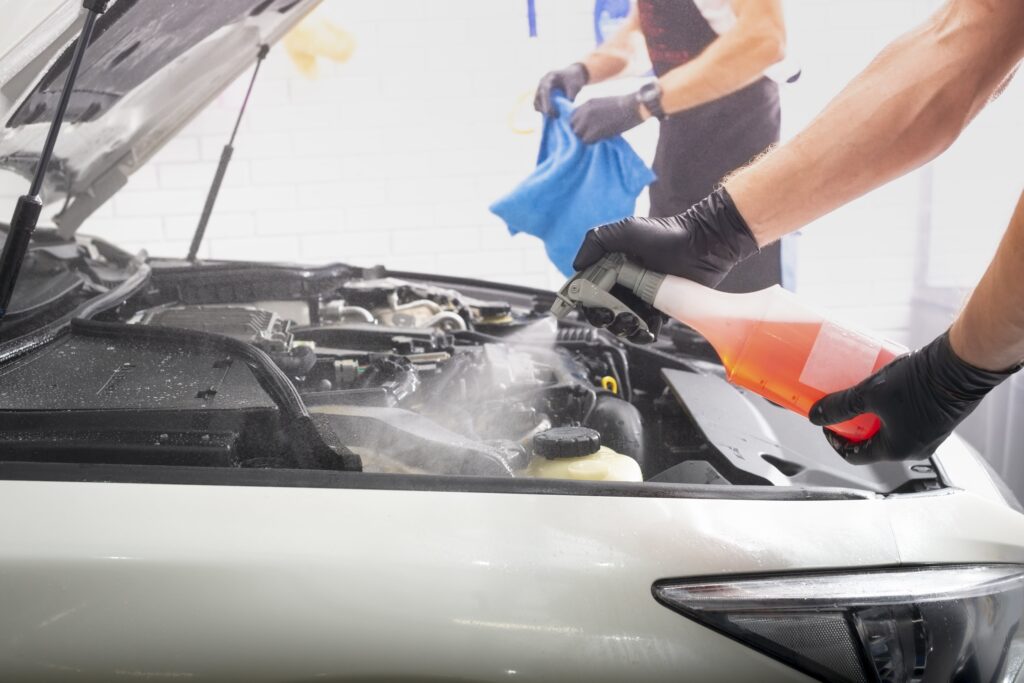Simple, regular engine maintenance can extend the life of your car’s engine. Your car’s engine should survive more than 200,000 miles if you take good care of it. This can save you from having to buy a new car or pay for a hefty engine replacement, which are both expensive and time-consuming. It is important for everyone to take good care of their vehicles, and this article provides tips on how to prolong the life of your car’s engine and drive it well over 200,000 miles.
Number One and Most Important: Oil and Filter Changes
One of the most crucial maintenance tasks for your engine is changing the oil on a regular basis. Make sure to complete this one even if you choose not to read the other measures to protect your engine, which we really hope you will. Essential engine components are kept well-lubricated with oil to prevent overheating. Without it, your engine cannot operate, and if you wait too long between oil changes, your engine may eventually sustain irreversible damage.
While there are many different recommendations on how often to replace your oil, the most recent guideline for contemporary cars is to do it every 5,000 miles (8,047 kilometers) [source: Cars.com]. While some older engines could require it sooner, certain engines have a longer lifespan. Since we’re talking about preventative engine maintenance, find out from the manufacturer how often your particular vehicle should have its oil changed. To find out when it has to be replaced, quickly check the internet if you can’t find the handbook for your vehicle.
It would be impossible to discuss oil changes without emphasizing the necessity of oil filter replacement as well. The oil filter prevents garbage from recirculating through your engine by collecting all the dirt and debris that is floating around inside it. Your engine will operate more smoothly and, most importantly, keep all of its internal components cool and lubricated with fresh oil and filter.
Secondly: Keep an Eye Out for Leaks
To detect a leak, you don’t need to be a mechanic. As a matter of fact, all you need to do is smell it. The two primary fluids you want to be sure aren’t leaking out of your engine are oil and antifreeze.
Engine hose failure is eventually caused by extreme heat and pressure. Old and broken rubber engine hoses might leak necessary fluids for your engine, such as antifreeze. Where two parts come together with silicon and a rubber seal are other common leaky spots. These seals have the potential to deteriorate over time, allowing fluids such as oil to leak out of the engine or into the incorrect places.
Examining the area beneath your hood to detect any leaks coming from the engine is a smart idea. Periodically inspect beneath your car when it’s parked to see if anything is seeping onto the pavement below. You may spare yourself a great deal of trouble in the future if you can detect a little leak early on and fix it before it becomes a bigger issue.
Next, Check the Coolant
The water pump, coolant, thermostat, and radiator are all part of the cooling system. Ensuring your engine has the right amount of coolant (radiator fluid) flowing through it is the simplest approach to prevent overheating.
When the thermostat senses that the engine is overheating and needs to be cooled, coolant flows through the engine. After that, the water pump removes the coolant from the radiator, transfers it to the engine block, and then returns the coolant to the radiator for further cooling. Lift the hood and examine your coolant tank to determine the coolant level. The liquid within the transparent tank is either orange or green in color. Make sure that the coolant level is above the minimum but below the maximum.
Take your vehicle to a professional and have the cooling system checked out if you find that your car is overheating and you are certain there is adequate coolant in it. The expense of identifying and fixing a cooling system issue early on will be significantly less than the harm that overheating would do to your engine.
Also, Keep Your Engine Cool
Just like people, cars also require a steady supply of air. Air is the second most important component to keep your engine going after fuel. The engine needs to be receiving air continuously, unhindered, and debris-free.
Air filters prevent debris from the outside, such as dirt, leaves, and insects, from entering your engine. These filters may need to be changed as they become clogged with dirt over time. In general, an air filter can survive for a very long time, depending on your driving style and the state of the road. However, if the filter is left to get excessively unclean and ineffective, it may either starve your engine of oxygen, allow in an excessive amount of debris, or both.
Check to verify if your air filter appears clean when you change your oil. To keep that engine operating smoothly and shield it from bugs and other road debris that winds up on your front bumper, replace it if necessary.
Lastly, Bring Your Vehicle in for Planned Maintenance Checks
Although it may seem apparent, many drivers neglect mechanical tune-ups when their car is operating at peak efficiency and there are no issues. However, regardless of how well the engine is operating, it is crucial to have your car serviced. This lowers the possibility of engine problems later on.
There should be set maintenance periods for your vehicle. Find out from your automaker or your mechanic how frequently recommended maintenance visits are. An engine tune-up is typically necessary for vehicles with higher mileage every 10,000 to 12,000 miles. Your car might only require an engine tune-up roughly every 25,000 miles if it has less than 50,000 miles on it.
Of course, plan a visit with your mechanic if problems occur or the check engine light illuminates, regardless of the state of your engine or the mileage on it.
Conclusion
Engine maintenance is required to keep them in good operating order. They need to be periodically checked out and require regular maintenance. In order to assist you in maintaining your engine properly and preventing major issues from arising, call or stop by for engine diagnostics and repairs in Belton, MO, at Belton Transmission & Complete Auto Care.

